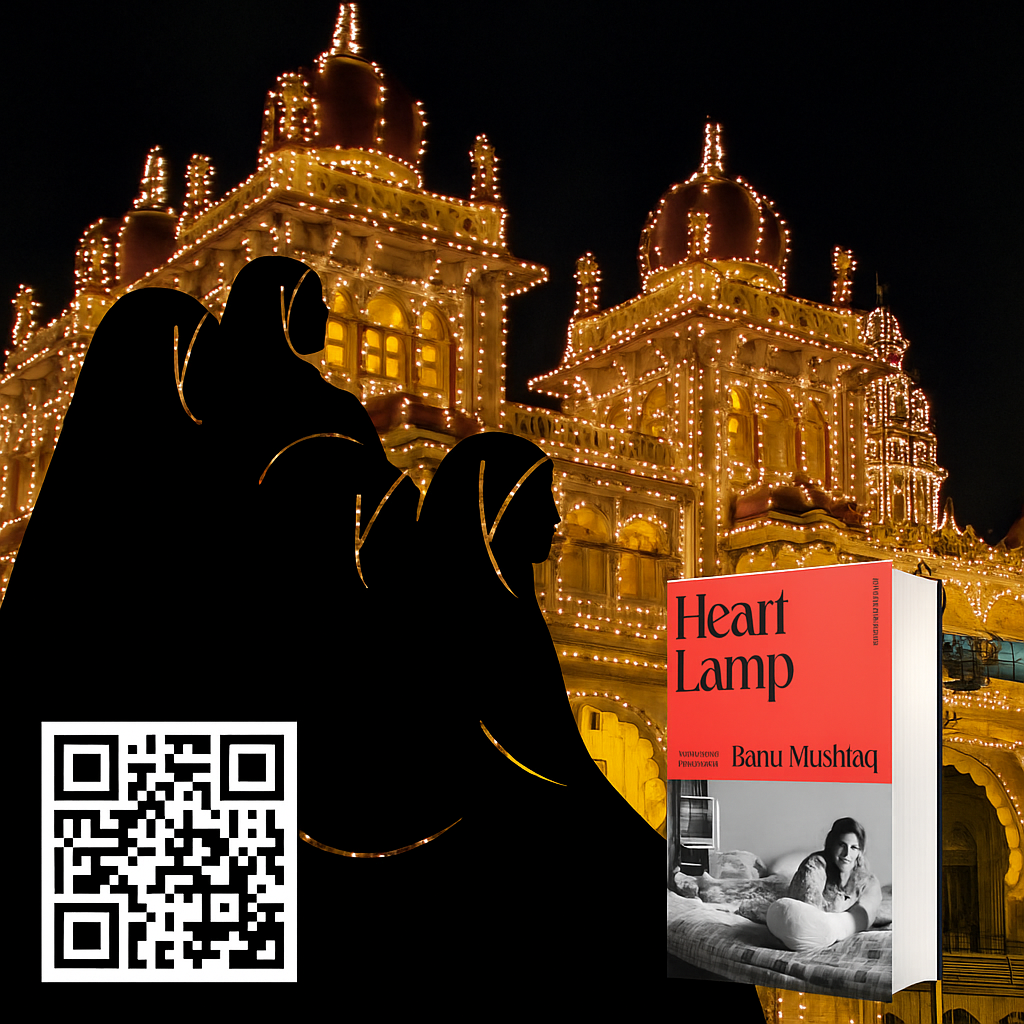
What I Expected
I was as excited as a child at Christmas when Banu Mushtaq’s Heart Lamp won the Booker Prize. Yeah, I was one of those kids who only looked for book-shaped presents from Santa.
Having lived in Bangalore, the bustling heart of Karnataka, I thought — finally, a book set in the world I knew, inhabited by the kind of warm, spirited, resilient people I’ve known all my life. But I quickly discovered that Heart Lamp was not the comforting, uplifting read I anticipated. Instead, it delivered something far more powerful and profoundly unsettling: clarity. Earlier I’d reviewed the appalling setup on Amazon..maybe that should have prepared me.
What I Found
These twelve stories vividly and painfully capture the lives of Muslim women in southern India. They are filled with subtle humour, emotional insight, and unflinching honesty. Mushtaq’s storytelling is impeccable — raw power that throbs with the rhythms of small-town life, from crowded markets to the intimacy of biryani-scented kitchens.
Deepa Bhasthi’s translation ensures that the English retains the feel of Kannada, allowing us to enter the stories’ immediate and compelling realities. And in doing so, it bursts some prejudices — and reinforces others.
For example, I learned that my snobbery about the “ghastly Urdu” spoken by South Indian Muslims was uncalled for. It’s not Urdu at all, but a dialect called Dakhni — a mix of Hindustani, South Indian languages, and Arabic (with far fewer glottals, thankfully). Ouch. That truth was personal and painful.
What Broke Me
What churned up my insides was how Mushtaq confronted me with uncomfortable truths I had long resisted accepting. The age-old stereotypes about gender oppression within Muslim communities — which I had dismissed as overblown — turned out to be devastatingly accurate here.
The women, often whitewashed as “resilient,” are shown as trapped — forced into endless cycles of oppressive tradition by male-serving notions of honour. Instead of reclaiming agency and stepping away from brutality and servitude, their stories reveal a heartbreaking reality: there is no escape. Not in these pages.
The story titled Heart Lamp should really be called Heart Lamp Extinguished.
What Shifted in Me
The blurb calls it anti-patriarchy — but there are cruel, careless women in these stories, too. Women who inflict pain on each other with shocking ease. Not all villains are men, and that makes the sorrow even deeper.
Do I hate men? Not even remotely. I have a beloved husband and three wonderful sons. Do I scorn Muslims? Absolutely not — I have Muslim friends. But perhaps most of them are from the upper or elite classes. Perhaps they do not reflect the harshest of realities captured here. I don’t know. What I do know is that kind, strong Muslim men are rare in these stories — Mr Banu excepted.
There are a few “good-ish” men: the Arabic teacher who is secretly addicted to Indian-Chinese Gobi Manchuri provides light relief. But they are far outnumbered by the thoughtless muttawalis, thuggish brothers, and faithless auto drivers. (That last one stung — many of the kindest auto drivers I’ve met in Bangalore have been Muslim.)
This unwelcome clarity shifted my political stance, too. I had once been skeptical about the Indian government’s ban on triple talaq, and its efforts to regulate Waqf properties. But after reading Heart Lamp, I now believe such interventions may be essential to protect the rights — and lives — of women.
Why It Matters
Yes, I had issues with the untranslated Kannada, Urdu, and Arabic words. It felt like a stylistic flourish. A glossary might have helped. But that’s a minor complaint.
What matters is this: Heart Lamp didn’t soothe me. It scorched me. It forced me to look at things I’d rather not see. It shattered illusions I didn’t know I still held. And that’s what great literature does.
Mushtaq’s fearless voice reminds me of Dickens — shining an unrelenting light on the injustices of a world most readers prefer not to enter. These are not easy or gentle stories. But that’s exactly why they matter.
If you’re a reader or a writer who believes books can change minds and hearts — start here.
